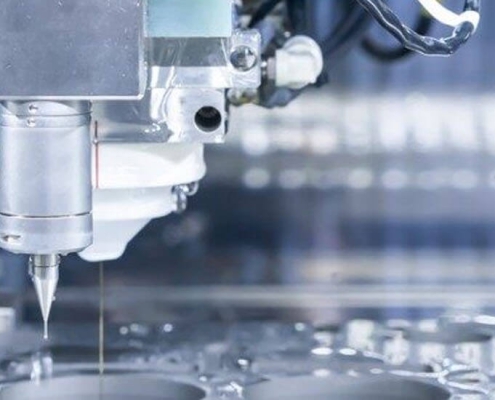Moulds Manufacturers in Chennai – SJ Technologies, We are Manufacturer, and Services Provider of Mould Products. And our setup is situated in Chennai. We serve Chennai area but majorly we serve our products to customers from Chennai. We manufacture all single and multi cavity compression moulds for sectors like automobile and switchgear industries. We also manufacture compression moulds suitable for hydraulic presses ranging from 50 tons to 300 tons.
Currently, we are manufacturing transfer moulds for sectors like automobile and switchgear. However, we have large capacity to make transfer moulds for any industry as per specific requirements.
We Perform Professional Mould
We focus our item advancement benefits on the plan of items dependent on Molded Parts. We can help you with item planning structure the applied stage. Mechanical structure falls inside a wide class of plan, which is the expert zone of action required with arranging and building up a wide assortment of Industrial and Domestic items.
Best Materials for Molds:
Mold materials are chosen based on the type of manufacturing process and the properties required in the final product. Common mold materials include:
- Steel: High-quality and durable for long production runs.
- Aluminum: Used for prototypes and shorter runs due to its faster heat transfer and lower cost.
- Copper: Suitable for high thermal conductivity and is often used for small and intricate parts.
- Plaster: Used for certain types of casting molds, especially in art and sculpture.
- Silicone Rubber: Suitable for making flexible molds, commonly used in artistic and culinary applications.
- Epoxy Resin: Used for creating detailed and small molds.
- Wood: Used for prototype and short-run molds for various applications.
Types Of Moulds
Molds, also known as moulds in British English, come in various types, each designed for specific applications and materials. Here are some common types of molds:
- Injection Molds
- Die Casting Molds
- Blow Molds
- Compression Molds
- Extrusion Dies
- Rubber Molds
- Casting Molds
- Permanent Molds
- Sand Molds
- Lost-Wax Molds (Investment Molds)
- Plaster Molds
- Concrete Molds
- Silicone Molds
- Epoxy Resin Molds
- Wooden Molds
Mold Making Process:
The process of creating a mold generally involves the following steps:
Design: Design the mold based on the product’s specifications.
Pattern or Master Model: Create a master model of the product, which the mold will replicate.
Mold Material Selection: Choose the appropriate mold material based on factors like material compatibility, production volume, and cost.
Mold Fabrication: Use machining, casting, or other methods to create the mold cavity.
Molding: Use the mold to produce the desired parts through processes like injection, casting, or compression molding.
Finishing: Clean, polish, and, if necessary, treat the mold for longevity and performance.
Quality Control: Ensure the produced parts meet quality standards.
Molds are critical tools in various industries, enabling efficient and precise mass production of components, parts, and products. The choice of mold type and material depends on the specific application and production requirements.
Our Services :
CNC Wire Cutting Job Works in Chennai, CNC Wire Cutting Job Works in Ambattur, EDM Wire Cut Job Works in Chennai, EDM Drill Job Works in Ambattur, Fine Blanking Parts, Press Tool, Moulds .
Testimonials
FAQ’s
What are Moulds in manufacturing?
Mould, also spelled Mould, in manufacturing, a cavity or matrix in which a fluid or plastic substance is shaped into a desired finished product. A molten substance, such as metal, or a plastic substance is poured or forced into a mold and allowed to harden.
How are Moulds manufactured?
Moulds are generally made from steel or aluminum and are precision-machined to form their specific features. A liquid material is fed into a heated barrel, mixed, and fed into the mold’s cavity, eventually cooling and hardening to the mold’s configuration.
What is cost of Moulds?
₹ 5,000/Piece. Usage/Application: Moulding & Application Moulding. Color: Customized. Cycle Time: Depends on Project. Design: Customized.
How can I make my own Moulds?
Instructions
Plant your object at the base of the disposable cup, in a shallow bed of plasticine or clay. …
Mix the silicone thoroughly as per the instructions on the pack. …
Pour the silicone into the cup with your object and let it dry for 15 mins.
Carefully use scissors to free the silicone mould from the plastic cup.
Why is molding expensive?
The size of the required product also drives the price forward. Larger parts and components require larger, more expensive molds, as well as more material to manufacture, which leads to a higher molding price. Also, larger components can take longer to make, which also increases the costs.
What steel is used for Moulds?
S7 steel is shock-resistant and is often used in die casting molds. 420 steel is corrosion-resistant and heat-treatable, while 4140 steel is highly wear-resistant and heat-treatable.
Link to: Contact Us
Call Us
Reach out to us for more information and to discuss your visit.
Contact Us







